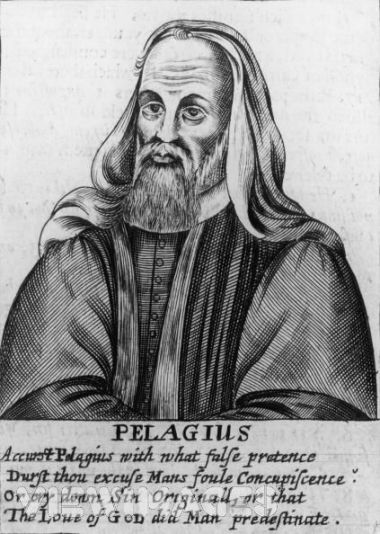Heretic Or Hero? 4 Reasons Pelagius Still Matters Today

On this day in the year 417 AD, a monk called Pelagius was declared a heretic and excommunicated from the Church by the Pope. Pelagius' name has ever since been tainted as one associated with theological scandal and heresy. But who was Pelagius, and what was so dangerous about his ideas? Can we learn anything from his life today?
Pelagius was a monk who lived in the third and fourth centuries after Christ, at a time when the Church was still trying to formalise much of its doctrine. Pelagius made his name by criticising the teaching of Augustine on questions of human nature, predestination and free will. He emphasised the basic goodness of humanity and humanity's free capacity to choose and do what is right. For Pelagius, human effort played a primary role in achieving salvation, and for many like Augustine, that was a step too far.
Nothing is known about what happened to Pelagius after his excommunication, but the monk certainly made a name for himself. Here are five reasons Pelagius still matters today.
1. He championed human freedom and basic goodness
Whether you agree with him or not, the ideas Pelagius explored are important and worth engaging with. Are human beings basically bad, good, or neither? Are they bound to sin, or do they have the freedom to keep all of God's commands and achieve salvation?
Pelagius was alarmed by a teaching of Augustine which emphasised that righteous human action was only possible if God actively granted it. "Grant what you command and command what you will," said Augustine.
Pelagius insisted that there was no defect in human nature which meant people couldn't fully keep God's commands. As he put it: "It would be as if, forgetting the weakness of humanity – his own creation – God had laid upon us commands which we were unable to bear. And at the same time...we ascribe to the righteous One unrighteousness, and cruelty to the Holy One...imagining that some will be condemned by God for what they could not help...God has not willed to command anything impossible...and will not condemn anyone for what they could not help."
In another passage, Pelagius rejected the notion of Original Sin, which teaches that humankind is born corrupt and destined to sin. "We are not born in our full development, but with a capacity for good and evil; we are begotten without virtue as much as without fault". But by minimising humanity's inherent sinfulness, Pelagius was also minimising the need for salvation that only God can bring about. If humans are not born sinful, then they don't rely only on God's grace, and if they have complete freedom in their choices, then the onus is on them to make the right choices that lead to salvation.
2. He helped shape orthodoxy
Heresy shapes orthodoxy. People often work out what they do believe by responding to something they definitely don't believe. For that reason several of the Church's ancient creeds arose out of controversy: a disagreement meant they had to work out what they really did agree on.
As such, Pelagius was deeply influential, if only as a symbol, perhaps a caricature, for the Church to react to. It might seem strange, but if Pelagius helped the Church work out what it certainly didn't believe, then that's something to be thankful for.
He also gives voice to real theological concerns that many still have today. Is it fair for God to command what he knows sinful human beings cannot do? Does putting all the emphasis on God's grace in salvation actually make Christians care less about their moral choices? The Church still needs to listen to those questions, and answer them thoughtfully.
3. His name became an insult
The same arguments that Augustine and Pelagius had still take place today, the best example probably being those between Calvinists and Arminians. Calvinists emphasise human depravity and the reliance on God's grace and predestination, while Arminians emphasise human freedom to accept the grace given in Christ. Arminians are not Pelagians, but may often be branded as such because of their emphasis on human freedom. Likewise, Reformation debates often took a similar shape, with debates between Protestants and Catholics about the role of good works, human choices, and divine grace.
4. He was excommunicated
Pelagius faced severe punishment for his views, being officially condemned by the Council of Carthage, later the Synod of Arles and ultimately excommunicated from the Church by Pope Innocent I. Was this an overly harsh reaction? Perhaps Pelagius needed a little more kind-hearted guidance instead of the rebuke he received. Some of his writings that remain only exist as cited by his opponents, so we don't know if they're completely reliable – Pelagius may have been quite misunderstood. Then again, his opponents were standing up for beliefs that they saw as nothing less than essential to the gospel, whose defence was vital.
What is the nature of human beings, and do we need God? Can we choose the good or are we compelled to do wrong by our nature? Pelagius helped the Church to wrestle with those questions, even if people didn't thank him for it.











